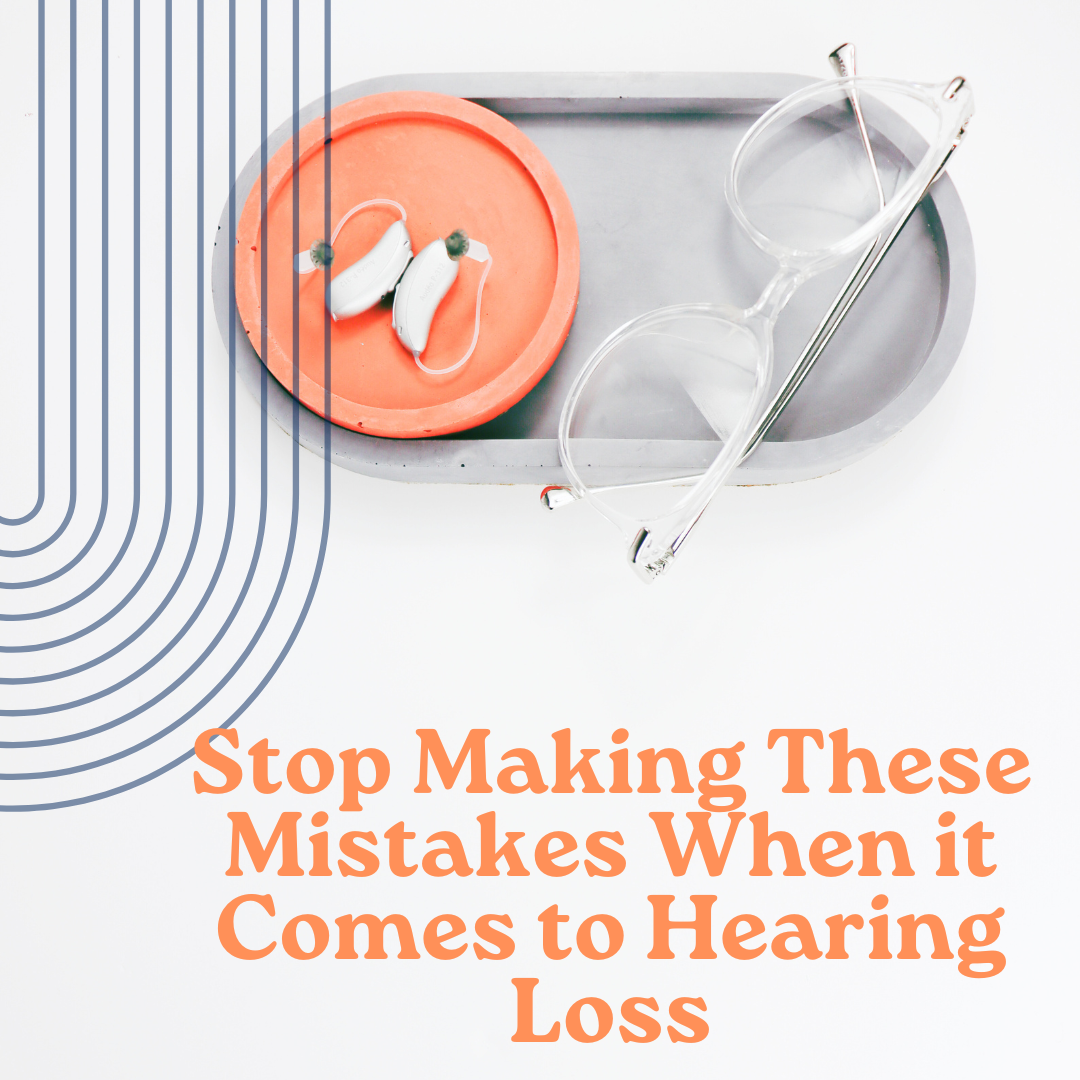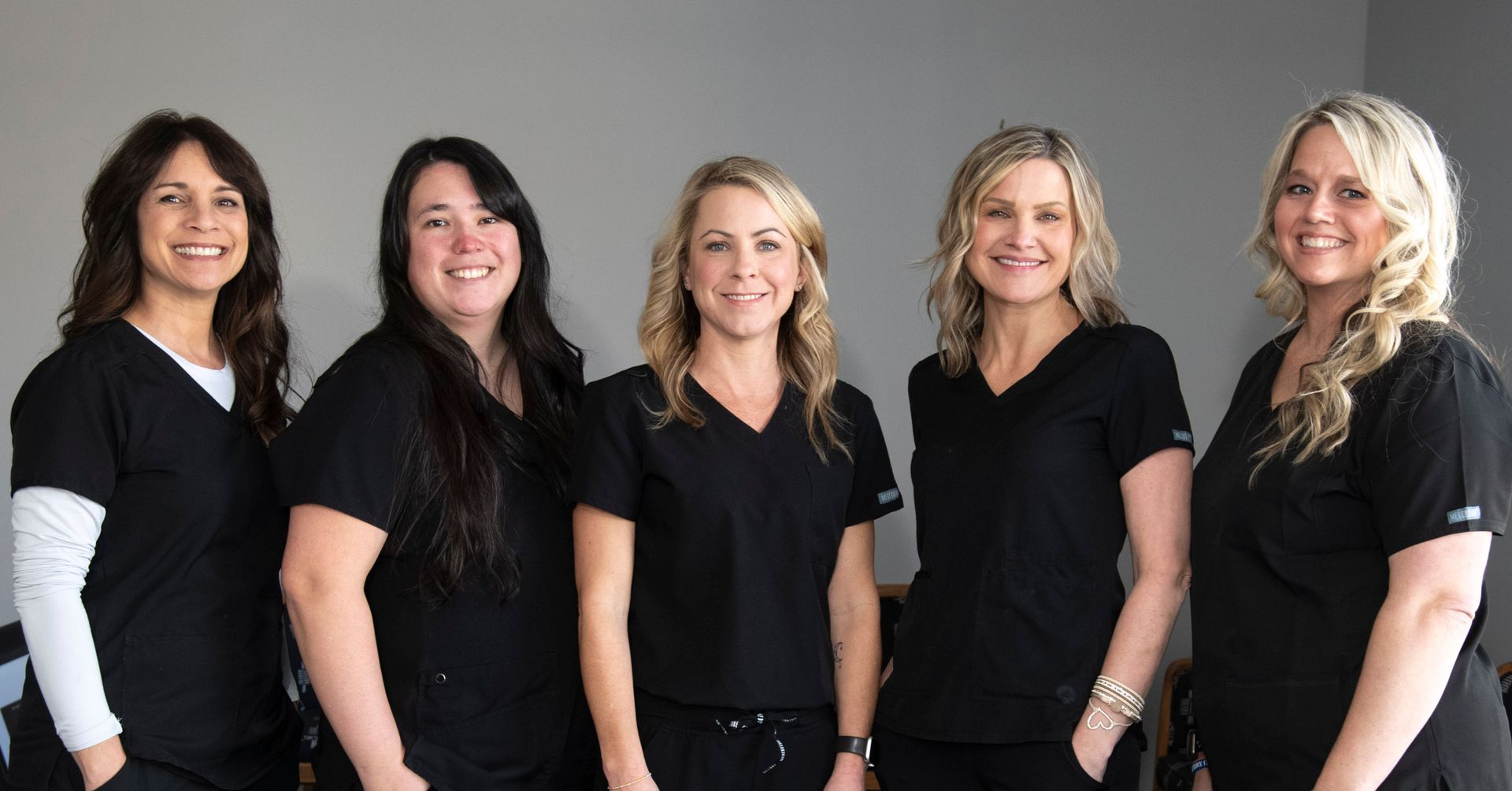Hearing Loss Mistakes

Stop Making These Mistakes When It Comes to Hearing Loss
June is Alzheimer's & Brain Awareness Month, so I thought it would be a good opportunity to talk about how hearing loss is intertwined with brain health. I’ll also share the biggest mistakes I see my patients making when it comes to hearing loss in the hopes that it might help you.
To back up my claim that brain health and hearing health are connected, I want to share something from the National Institute on Aging. They did some studies and discovered that cognitive abilities (such as memory and concentration) decline faster in older adults with hearing loss than in people without hearing loss. There’s also a greater risk of developing dementia.
But don’t worry; there’s good news, too! A recent 2023 study found that people who use hearing restorative devices (like hearing aids) had a lower risk of long-term cognitive decline compared to people who did nothing to manage their hearing loss.
At 4 Bridges Audiology, we hope everyone, regardless of age, prioritizes their hearing health. But we also recognize that sometimes, these things don’t take precedence until they start to disrupt your quality of life. Hopefully, these mistakes I’m about to share will convince you to think about how you can preserve your hearing and manage any issues you might be experiencing today.
Mistake #1 - Thinking You’re Too Young to Have Hearing Loss
There are a lot of misconceptions around how old you must be to experience hearing loss. People of all ages can develop issues with their hearing health. It’s similar to your eyesight. Yes, many people have more trouble with their vision as they age. But that doesn’t mean young people don’t have vision issues. We see kids, teens, and young adults all the time with glasses to correct issues with their vision. Hearing is the same thing!
This misconception is frustrating because it has created a stigma amongst younger people that hearing aids are only for seniors. So, people wait to get them until they reach an “acceptable” age. In the meantime, they end up experiencing a reduced quality of life. This is something we’re trying hard to raise awareness about because it’s something we see more often than we want.
Mistake #2 - Expecting Hearing Aids to Make Background Noise Disappear
Hearing aids are amazing, but they do not have the ability to cancel out certain sounds altogether. Their main goal is to help bring speech sounds THROUGH the noise so you can hear the things you need or want to hear with more clarity and comfort. Many of the more sophisticated hearing aid brands are able to dampen or lessen the background noise to a level where it is less interfering with the speech that you want to hear. But remember…
Hearing aids are NOT noise-canceling headphones. True noise-canceling headphones should make it difficult to hear everything around you, including speech. Hearing aids are trying to simultaneously reduce background noise from all directions while helping you hear very soft speech from different speakers and from different directions. This is an extremely difficult process, even if you think about it in the simplest way.
We think it’s important to talk about what hearing aids can and can’t do with our patients and even with prospective patients who may not be quite ready for hearing aids yet. The last thing we want is for someone to have false hopes about what this technology can do for them.
At 4 Bridges Audiology, we strongly encourage patients who are candidates for cochlear implants to take the next step in their hearing journey. Sometimes a traditional hearing aid is not the most appropriate option. I have seen several patients over the last few months that try new hearing aids, but they have not improved their hearing because they are truly cochlear implant candidates. There are limitations to what audiologists can do to improve people’s hearing with traditional hearing aids and we are here to help you make the most informed decision for your hearing loss needs.
We work with patients with all types of hearing devices - hearing aids, cochlear implants, and bone-anchored hearing aids. We even offer a few OTC hearing devices. We want to ensure that our patients have the access they need to the right type of hearing device for THEIR hearing loss and lifestyle.
Mistake #3 - Playing the Waiting Game with Your Hearing Loss
This is another frustrating one for audiologists. If you have hearing loss, you should absolutely address it right away. You don’t need to wait until it gets worse to seek treatment. In my opinion, waiting is like gambling with your health. Remember what I shared earlier about cognitive abilities declining more rapidly amongst those with hearing loss? When your brain is deprived of speech sounds for too long, it actually starts to forget what certain speech sounds like.
For example, I had a patient who waited five years to get help for his hearing loss. During his baseline hearing test when I asked him to repeat a simple word test (at a comfortable level for him) he got one word wrong. Five years later, I gave him the same test and this time, he got seven wrong. According to the results of this test, he is now probably only able to understand 72% of what he hears in a quiet listening environment even when he is wearing hearing aids.
I don’t know about you, but that wouldn’t be good enough for me! Your quality of life and your brain health benefit so much when you decide to seek help for your hearing loss right away. Hearing aids can adjust the sound quality so you can hear it, but it can’t help your brain process the information and understand it.
I hope this post doesn’t come across as too negative, but sometimes, I think we all need a bit of a wakeup call when it comes to our health. We take it for granted, or we think that whatever is bothering us will just “go away.” But unfortunately, hearing loss doesn’t just go away.
At 4 Bridges Audiology, we want you to live your life on your terms and enjoy everything to the fullest. We would love to schedule a hearing evaluation to see if there are any areas of concern that we need to pay attention to. Give us a call at
423-521-3277 and let’s chat more about it!












